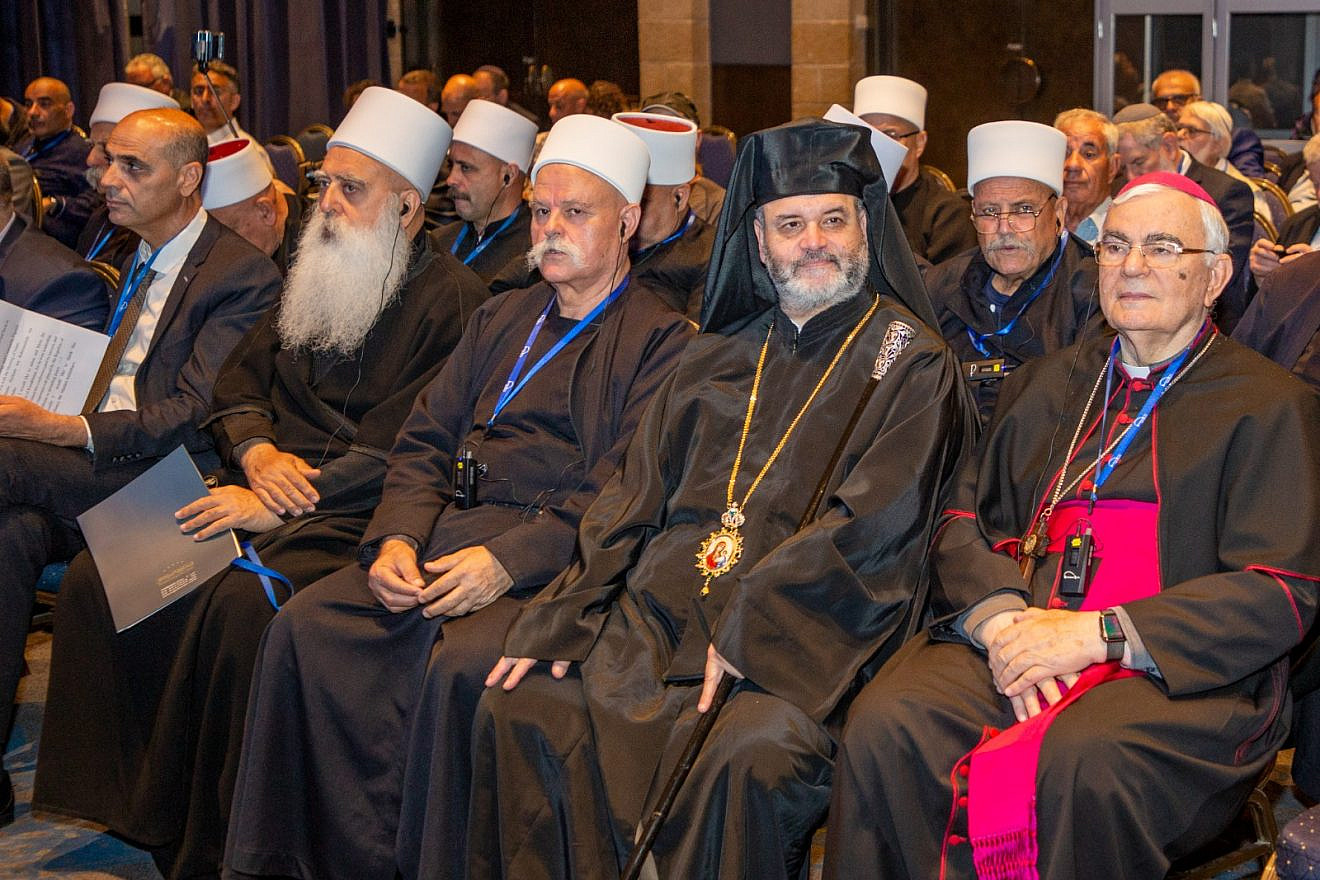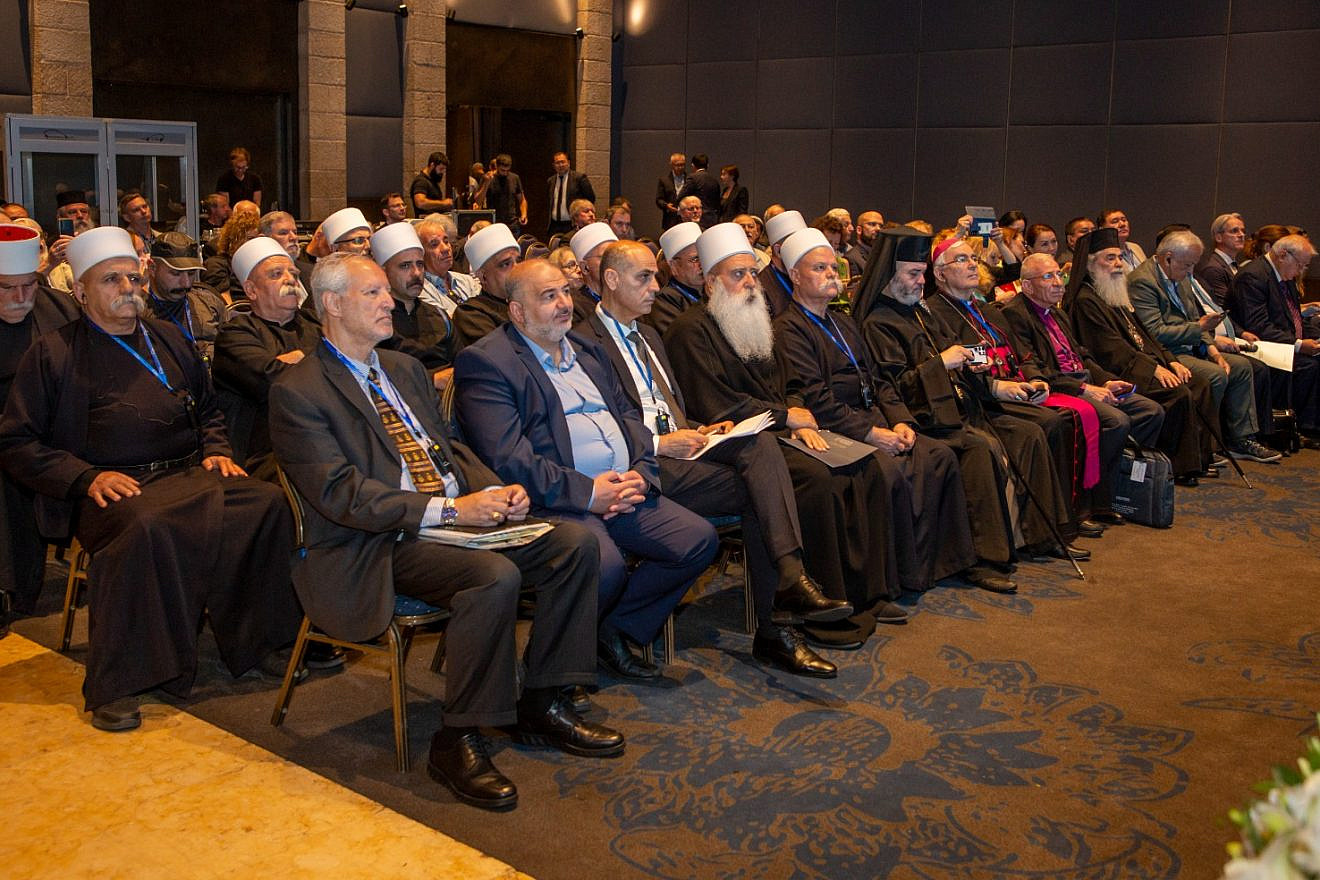Scores of religious leaders representing the world’s major faiths gathered in Jerusalem on Tuesday, seeking to promote dialogue and cooperation in the Holy Land.
The morning-long session at the Religious Leaders Unite for Peace conference brought together Christian, Muslim, Jewish and other spiritual leaders in Israel’s capital. It was organized by the Republic of Kazakhstan, which has hosted such conferences in Astana every three years over the last two decades.
“The Holy Land should be—and could be—a model for how nations can live together in peace, but sadly we are very far from this reality,” said Theophilos III, the patriarch of the Orthodox Church of Jerusalem.
“True peace can only be built on mutual respect and the desire for the good of the other,” he added, noting how elusive these goals were at a time when Christians throughout the Middle East are under assault by Islamic extremists.
“We must reject violence, racism and aggression and not allow extremism to spoil the harmony in our societies,” said Dr. Iyad Zahalka, a Muslim judge of the High Sharia Court of Appeals in Israel.
“There can be no true religious and spiritual life if there is no peace,” said the American-born Chief Rabbi of Dimona Yitzchok Elefant. “As religious leaders we must be truthful. The Lord promised the land to the Jewish people. When we understand that we can share—and must compromise—and can live together.”
The colorful event held in a central Jerusalem hotel received almost no mainstream media coverage. It saw black-robed priests sitting next to black-hatted rabbis, and sheikhs with red and white checkered keffiyehs mixing with Druze leaders in their traditional white and red caps.
Each of the religious speakers at the event promoted coexistence, dialogue and cooperation—the themes of the conference.

“Religion should be part of the solution”
“Religion should be part of the solution, not part of the problem,” offered Bishop Giacinto-Boulos Marcuzzo, Latin patriarchal vicar for Jerusalem and Palestine.
“This gathering is a small example of the oneness of humanity and religion itself,” said David Rutstein, secretary general of the Baha’i International Community. “Jerusalem is the heart of Israel but in reality the heart of the Holy Land which encompasses all of humanity.”
“It is beautiful to see all the people of all religions sitting here in the City of Peace—in what should be the City of Peace,” said Rabbi Eliezer Simcha Weisz, a member of the Chief Rabbinate Council of Israel.
The rabbi, who participated in previous conferences in Kazakhstan, said he only wished the whole delegation was walking together in the streets of Jerusalem. ”We can live together,” he added, opining, “It’s not like the allegorical lion and lamb.”
“If all the religions can live together in peace in Kazakhstan, then why not in the Middle East where religion began?” asked Sheikh Mowafaq Tarif, qadi (spiritual leader) of the Druze community in Israel. He said that the video of the gathering should be broadcast around the world.
“Our religions are different but our God is one,” said Rabbi Yakov Nagen, director of the Blickle Institute for Interfaith Dialogue at Ohr Torah Stone. “Let us grow closer together. This is truly the will of the divine.”
Kazakhstan, the ninth-largest country in the world with a territory the size of Western Europe, is ethnically and culturally diverse, in part due to mass deportations of ethnic groups to the country during Stalin’s rule.
Although Islam is the primary religion, followed by Russian Orthodox Christianity, the moderate nation allows freedom of religion, with 18 denominations registered in the country of 19 million, including about 3,000 Jews.
Israel and Kazakhstan established diplomatic relations more than three decades ago, after the fall of the Soviet Union, with growing political and economic ties forged in recent years.


























